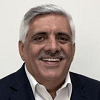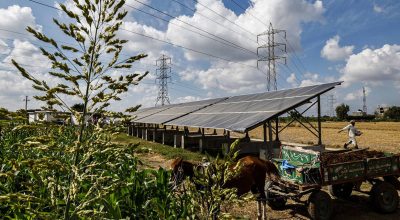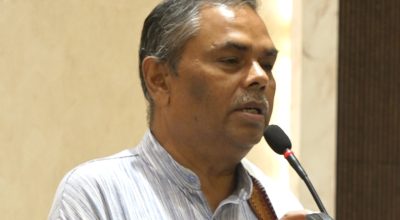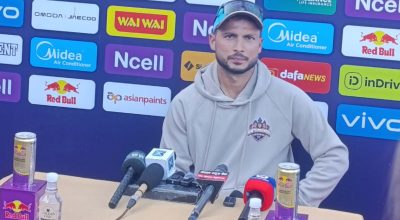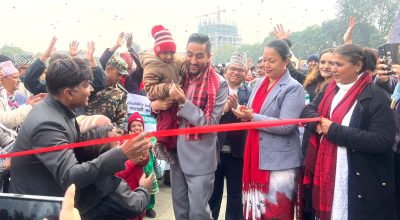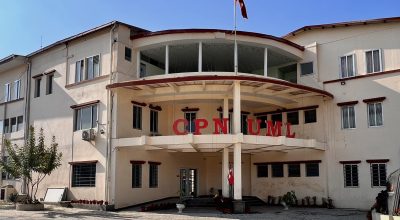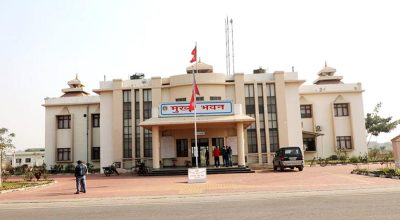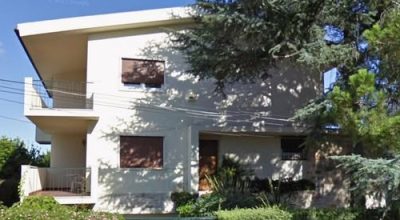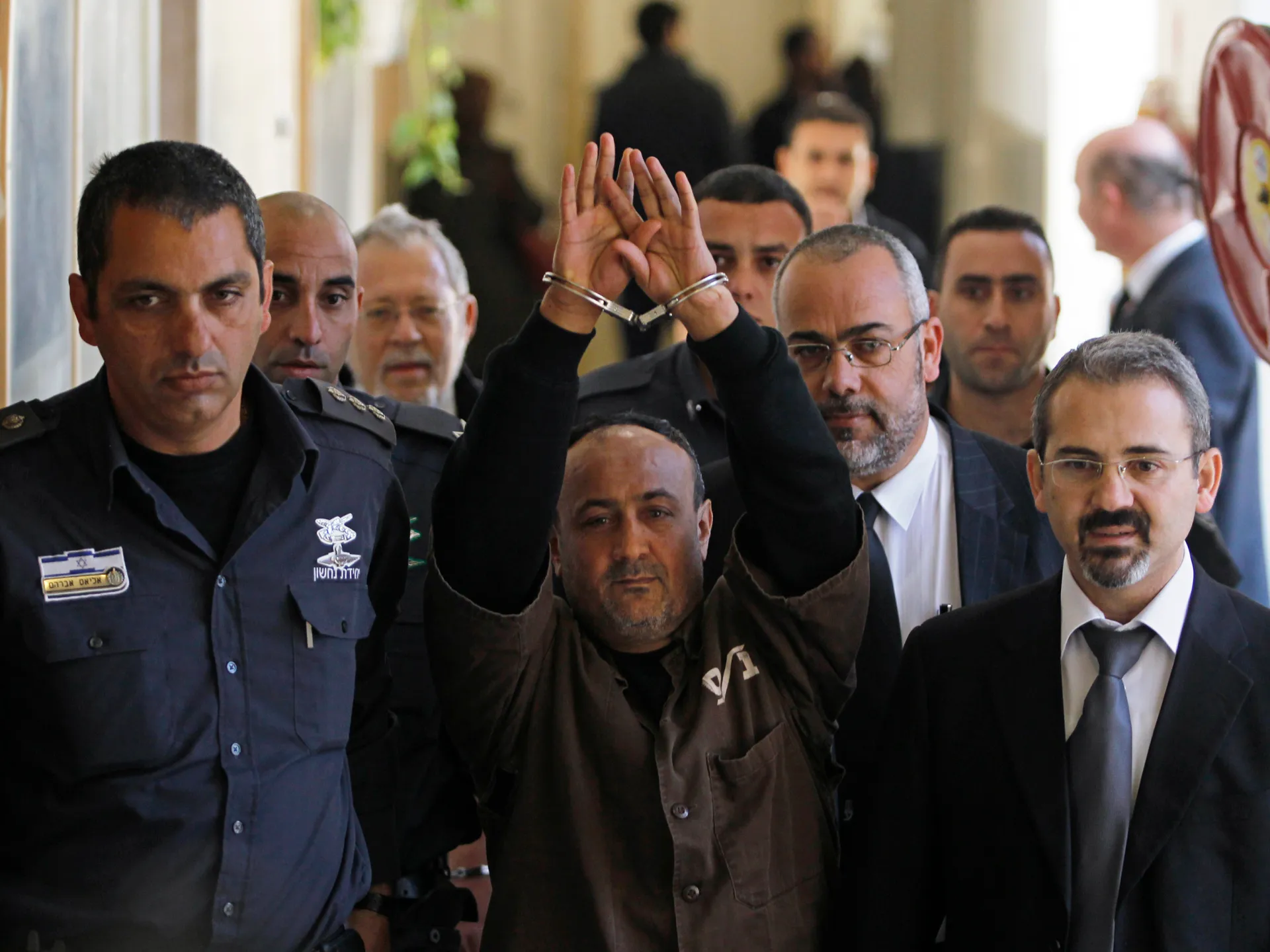
RAMALLAH – Hamas leaders have declared that any ceasefire deal in Gaza must include the release of Marwan Barghouti, a popular Palestinian leader who has been in an Israeli prison since 2002. In fact, Barghouti might be the key to more than a ceasefire; he may well be the best hope of reviving the two-state solution.
Now 64 years old, Barghouti has been a member of Fatah, the dominant faction within the Palestine Liberation Organization (PLO), since he was a teenager. He co-founded Fatah’s shabiba (youth movement) decades ago, before rising to lead the Tanzim, Fatah’s grassroots cadres that uphold the organization’s local-level leadership. Though he has spent more than two decades in an Israeli prison, he remains well-known and widely respected among Palestinians.
I first met Barghouti in the 1980s with my cousin, Mubarak Awad, an advocate of nonviolent activism. Given his interest in the effectiveness of nonviolent struggle, Barghouti had been given the Arabic edition of Nonviolent Soldier of Islam, a translated biography of Khan Abdul Ghaffar Khan, an ally of Mahatma Gandhi in the Indian independence movement. Barghouti was keen to learn not only about Khan, but about anyone, from Gandhi to Martin Luther King, Jr., who might offer useful insights into how to achieve Palestinian liberation.
This intellectual quest shaped Barghouti’s leadership of the First Palestinian Intifada that began soon after. The massive protests began as a nonviolent uprising aimed at “shaking off” (the translation of intifada) Israeli occupation; violence erupted only after the killing of four Palestinian laborers in Gaza. Barghouti became too high-profile for Israel’s liking, and he was arrested for incitement and later expelled to Jordan.
During this period, Barghouti began to see the weaknesses in Fatah’s structure. Palestinians needed to be preparing for statehood, he concluded, so Fatah had to become a political party. It was a bold idea – and a controversial one. When I mentioned the prospect to Fatah’s founder, PLO Chairman Yasser Arafat, during an interview in Tunisia, he became furious.
A liberation movement like Fatah could “represent all Palestinians,” Arafat declared, unifying right and left, religious and secular, behind a single aim: liberating Palestinian lands. But as a political party, it would have to create a platform and take a stance on all manner of issues, leading to division and weakness. He then abruptly ended our interview, leaving me slack-jawed.
I have since come to believe that Arafat’s angry lecture was really intended for Barghouti and other young Palestinian leaders in the West Bank with whom I was in contact. And there may well have been some wisdom in it: a fragmented Fatah has, after all, struggled to contest elections against the united Hamas.
In 1994, Barghouti was permitted to return from Jordan under the Oslo Accords that the PLO had negotiated with Israel. But he was no fan of the Accords, doubting Israel’s commitment. And, in fact, far from returning Palestinian lands in exchange for peace, the Accords allowed hawkish Israeli leaders to quadruple the number of Jewish settlers in those lands.
After being elected to the Palestinian Authority’s new parliament, the Palestinian Legislative Council, in 1996, Barghouti began advocating actively for the establishment of an independent Palestinian state, having learned Hebrew in prison and then building relationships with Israeli politicians and peace activists in order to further the cause. (He also campaigned against corruption in Arafat’s administration and human-rights violations by its security services.)
But Barghouti was becoming disillusioned with the peace process – a feeling that intensified after the collapse of the Camp David summit in 2000. By 2002, he no longer identified as a pacifist, though he made clear that he was not a terrorist either. “I, and the Fatah movement to which I belong, strongly oppose attacks and the targeting of civilians inside Israel,” he wrote that January, but “I reserve the right to protect myself, to resist the Israeli occupation of my country, and to fight for my freedom.” Far from seeking to “destroy Israel,” Barghouti concluded, “I still seek peaceful coexistence between the equal and independent countries of Israel and Palestine.”
But violent attacks on Israelis, largely carried out by Hamas, were increasing, and in March 2002, Israel effectively ripped up its security pacts with Arafat and the Palestinians, before re-occupying all major Palestinian cities from which it had withdrawn under the Oslo Accords. Soon after, Israeli security forces arrested Barghouti on murder charges linked to his alleged involvement in deadly attacks on Israelis. Refusing to recognize the court’s authority, he did not put forward any defense, and was handed five consecutive life sentences.
Even behind bars, Barghouti has remained an influential figure in Fatah and a champion of the Palestinian cause. Together with other jailed Fatah leaders, in 2006 he produced a document for the PLO outlining tactical measures, including limiting armed resistance to territories occupied in 1967 and establishing a unity government.
Barghouti believes wholeheartedly in the right of Palestinians to self-determination, having made great personal sacrifices for the cause. He also understands the realities on the ground, and recognizes the need to find a way to coexist peacefully with Israel. And he may well be the only leader with the standing to convince Palestinians across factions to accept an imperfect compromise, if it means they can finally live peacefully alongside Israel in an independent Palestinian state.
I haven’t spoken to Barghouti directly since our meetings in Tunis in the 1990s, but I have followed his story closely over the years and believe that, once released from prison, he would quickly reclaim his role as a moderate Palestinian patriot and open the way for real progress. With Israeli-Palestinian relations at a historic nadir, there may be no one better suited to lead the way to a just peace.
Daoud Kuttab, an award-winning Palestinian journalist, is a former professor of journalism at Princeton University.
Copyright: Project Syndicate, 2024.
www.project-syndicate.org




